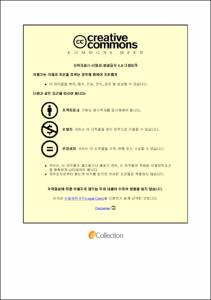FTA 산업별 원산지기준과 결정요인의 상대적 중요도에 관한 연구
- Alternative Title
- A Study on the Relative Priority of Industrial Rules of Origin (RoO) and the Determinants of the Rules in Korea's FTAs
- Abstract
- To increase the benefits from an FTA, reasonable Korean FTA Rules of Origin should be prepared if possible. Furthermore, Rules of Origin should be consistently maintained between parties contracting an FTA.
Regarding the decision of the Product Specific Rule (PSR) among Rules of Origin, firstly it should be checked what determinants were regarded as important ones from Industrial Rule of Origin and the many determinants of the Rule when the Korean side negotiated with the contracting party on FTA Preferential Rules of Origin.
To solve the above problems in the study, a questionnaire survey was carried out toward experts handling affairs related to FTAs at administrative organs and toward customs brokers.
The relative priority of Industrial Rules of Origin and the determinants of the Rules in Korea's FTAs were analyzed using AHP.
The findings of the analysis were as follows: First, as for priority by industry, four fields including automobile (parts) industry, textiles, fabric, and clothes industry, electric and electronic industry, and agricultural, fishery, livestock products and related processed foods industry were evaluated.
As a result of the evaluation, they were listed in order of priority as follows:
Automobile (parts) industry, agricultural, fishery, livestock products and related processed foods industry, electric and electronic industry, and textiles, fabric and clothes industry. Second, the results of analysis on the priority of Industrial Rules of Origin and the determinants of the Rules in Korea's FTAs were as follows:
Among four factors including tariff rate difference between both countries, industrial sensitivity, import and export trade volume, and intermediate input import rate, industrial sensitivity was evaluated as the first place in all industries except the electric and electronic industry.
As for tariff rate difference between both countries, it was evaluated as the third place in the agricultural, fishery, livestock products and related processed foods industry, but it was evaluated as the last place in all industries.
The findings of the study showed a very meaningful significance as follows: First, it was an unexpected result that automobile industry was evaluated as the first place in priority by industry. At the beginning of the investigation, it was expected that agricultural, fishery, livestock products and related processed foods industry would be evaluated as the first place. The above result included a meaning that the opinion of workers in the related field should be reflected when any policies were set. Second, at the negotiation of FTA Rules of Origin, industrial sensitivity should be checked firstly in not only fragile industries like the agricultural, fishery, livestock products and related processed foods industry, but also all industries. Lastly, as for tariff rate difference between parties negotiating, it should be seriously discussed under tariff elimination negotiation rather than what was reflected in Rules of Origin.
The applied tariff rates of most countries including the U.S., the EU, and so on had very low value. Therefore, the effects of tariff elimination by FTA contract would not be that great, excluding several items.
In this study, it was found that Rules of Origin reasonable for the current state of Korean industry were needed to have negotiating power under FTA negotiations with other countries. Accordingly, it was expected that practical analysis results from surveys toward experts in the FTA-related field would be effective information.
- Issued Date
- 2016
- Awarded Date
- 2016. 2
- Type
- Dissertation
- Publisher
- 부경대학교 대학원
- Affiliation
- 부경대학교 대학원
- Department
- 대학원 국제통상물류학과
- Advisor
- 조찬혁
- Table Of Contents
- Ⅰ. 서 론 1
제1절 문제의 제기 1
제2절 연구목적과 범위 4
제3절 연구의 구성 6
Ⅱ. 선행연구 분석 8
제1절 원산지기준 결정요인의 선행연구 8
제2절 선행연구의 요약 17
Ⅲ. 산업별 원산지기준의 특성 및 문제점 21
제1절 원산지규정의 엄격성 21
제2절 원산지규정의 복잡․다양성 27
Ⅳ. 연구모형의 설정과 실증분석 33
제1절 요인추출 33
제2절 연구모형 37
제3절 실증분석 40
1. 설문지의 구성 40
2. 자료수집 및 분석 41
3. 분석방법 42
Ⅴ. 상대적 중요도에 대한 분석결과 44
제1절 표본의 일반적 특성 44
제2절 AHP 분석을 이용한 상대적 중요도 평가 46
1. 1차 계층 분석결과 46
2. 2차 계층 분석결과 48
3. 복합가중치를 통한 종합중요도 분석결과 57
Ⅵ. 결 론 60
제1절 연구결과의 요약 60
제2절 연구의 시사점 63
제3절 연구의 한계 및 향후 연구과제 66
참고문헌 67
설 문 지 72
- Degree
- Master
- Appears in Collections:
- 대학원 > 국제통상물류학과-FTA비즈니스전공
- Files in This Item:
-
-
Download
 FTA 산업별 원산지기준과 결정요인의 상대적 중요도에 관한 연구.pdf
기타 데이터 / 3.98 MB / Adobe PDF
FTA 산업별 원산지기준과 결정요인의 상대적 중요도에 관한 연구.pdf
기타 데이터 / 3.98 MB / Adobe PDF
-
Items in Repository are protected by copyright, with all rights reserved, unless otherwise indicated.